
CRA Announcements
Check out opportunities to get involved with CRA!

Check out opportunities to get involved with CRA!
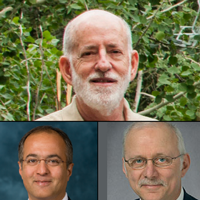
CRA Executive Director Andrew Bernat, board member H.V. Jagadish and former board member M. Tamer Özsu have been named Fellows of the American Association for the Advancement of Science (AAAS).
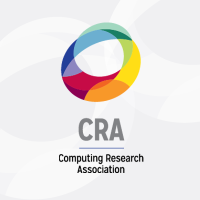
The event will be livestreamed on Tuesday, December 12 at 8:45 AM EST.
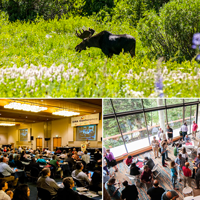
The biennial CRA Conference at Snowbird is the flagship invitation-only conference for the leadership of the North American computing research community. The upcoming conference will be held July 16-18, 2018 in Snowbird, Utah.

The latest US News and World Report (USN&WR) ranking of Computer Science (CS) at global universities does a grave disservice to USN&WR readers and to CS departments all over the world. Last week, we respectfully asked for the ranking to be withdrawn. Unfortunately USN&WR declined.
The methodology used — rankings based on journal publications collected by Web of Science — ignores conference publications and as a consequence does not accurately reflect how research is disseminated in the CS community or how faculty receive recognition or have impact. Furthermore, the list of venues is not public. So while some may debate the soundness of any bibliometric-based rankings, there will be no debate about the flaws in the rankings USN&WR has published; the methodology makes inferences from the wrong data without transparency and, consequently, it arrives at an absurd ranking.
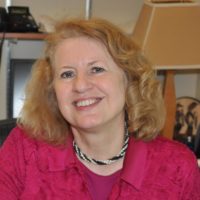
The NAS report discusses strategies central for managing enrollment and resources, and makes recommendations for departments and institutions. Its findings and recommendations provide much-needed guidelines on how institutions can allocate resources to meet growing student demand and to adequately support their computer science department in the increasingly central role of computer science in education and research.
The New York Times recently published an article on jobs in STEM. The main takeaway from the piece – job opportunities in STEM fields vary widely; but computer science job openings outpace graduates. Here’s a snippet: Much of the public enthusiasm for STEM education rests on the assumption that these fields are rich in job opportunity. Some […]
The National Academy of Sciences (NAS) has released a new report titled “Assessing and Responding to the Growth of Computer Science Undergraduate Enrollments“. The report urges U.S colleges and universities to respond to the ongoing surge in undergraduate enrollments in computer science programs, which is straining resources. The report was prepared by the NAS Committee on […]
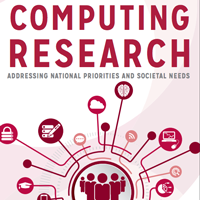
For more information about the symposium please see the agenda and symposium website. The event will be livestreamed here starting at 8:30AM EDT on Monday, October 23rd. You can also join the twitter conversation using #CCCsymposium!
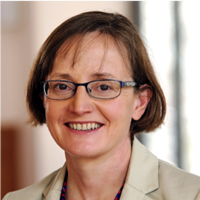
Former CRA Board Member Margaret Martonosi organized a statement on diversity at the MICRO-50 conference.
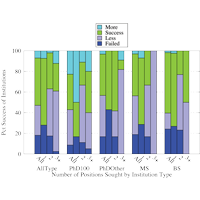
Professor Craig E. Wills presents new work that directly follows his previous analysis of current and future computer science needs via advertised tenure-track faculty searches for 2017. This follow-on work looks to understand the relative success of institutions in hiring the tenured/tenure-track faculty in the areas of computer science that were being sought.
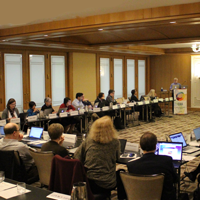
The Computing Research Association seeks your help in suggesting nominations for its board of directors. We want individuals who have the time, energy and initiative to work on CRA issues on behalf of the entire CRA community. We have a working board, and all members are expected to be involved with community issues.
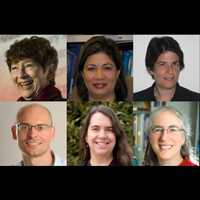
This award program honors faculty members in computing who have made a significant impact on students they have mentored. The CRA-E Undergraduate Research Faculty Mentoring Award recognizes faculty members who have provided exceptional mentorship and undergraduate research experiences and, in parallel, guidance on admission and matriculation of these students to research-focused graduate programs in computing.
Recently, CRA board member Kim Hazelwood (Facebook) and Natalie Enright Jerger (University of Toronto) published an article in Computer Architecture Today that analyzed gender diversity in the sub-discipline. CRA’s Jane Stout provides her commentary.
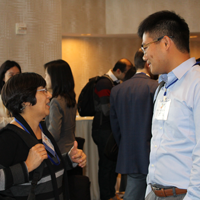
CRA’s biennial Career Mentoring Workshop will be offered on February 26-27, 2018 at The Westin Arlington Gateway in Arlington, Va.
The workshop provides career advice and mentoring activities for junior assistant professors in computer science and engineering. The workshop will include a series of panels, plus opportunities to network with senior researchers and representatives from government agencies. The 2018 workshop will also feature a session held at the National Science Foundation (NSF). Participants will have the opportunity to visit NSF and meet with NSF CISE program directors.
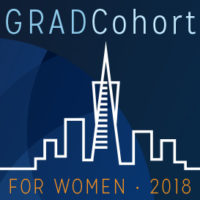
Applications are open for the upcoming CRA-Women Graduate Student Cohort for Women which will be held April 13-14, 2018 in San Francisco, CA. CRA-W Grad Cohort for Women is a two-day workshop for female students in their first, second, or third year of graduate school in computing fields.
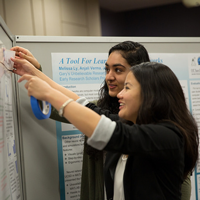
Engaging undergraduates in research can be an effective way to increase their confidence, perception of science, and sense of belonging. But at many large research universities, it can be difficult for undergraduate students—especially early undergraduates—to find research opportunities. Furthermore, even when they find opportunities, they might not have the background, training, or support to be successful. These issues are particularly acute for women and other underrepresented groups in computer science as they tend to have less pre-college computer science experience.
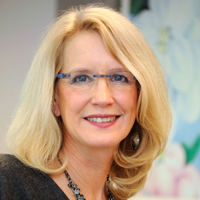
This year, CRA Board Chair Susan Davidson received the IEEE TCDE Impact Award for “expanding the reach of data engineering within scientific disciplines.” In this interview, Davidson reveals how her interest in bioinformatics came about and how her career led to this award. Two of her favorite problems have been data integration and data provenance.
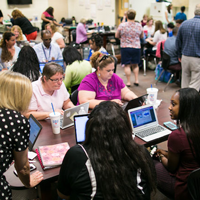
The CRA-Education Committee has added to its website a new resource for “Teaching Computer Science: Capacity Building and Scaling.” Across the United States and Canada, universities and colleges are facing significant increases in undergraduate computer science (CS) enrollments. This surge has exceeded all previous CS program booms and there is a general sense that the current enrollment growth is substantially different than that of the mid-1980s and late 1990s. CRA’s Generation CS Study provides excellent insight into enrollment trends and their impact on computer science units, diversity, enrollment management strategies, and more.
On December 12, 2017, the Computing Research Association will host a Summit on Technology and Jobs in Washington, DC. The goal of the summit is to put the issue of technology and jobs on the national agenda in an informed and deliberate manner. It will bring together leading technologists, economists, and policy experts who will offer their views on where technology is headed and what its impact may be, and on policy issues raised by these projections and possible policy responses.
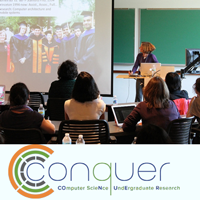
The Computing Research Association’s Education Committee (CRA-E) is excited to announce a new and improved version of its Conquer website (conquer.cra.org/cra) for CS undergraduates interested in research and graduate school. The site also has resources for faculty who are interested in mentoring undergraduate research and helping their students apply to graduate school.
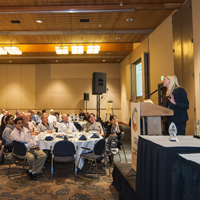
The Computing Research Association invites nominations for the 2018 CRA Distinguished Service Award and A. Nico Habermann Award. The deadline for receipt of nominations is December 8, 2017.
Two years ago, the leadership of the House Science, Space and Technology Committee looked to our organization, the Computing Research Association, to endorse an approach to reauthorize funding at a number of key Federal science agencies. The proposed legislation would provide increases for computing research funding at the National Science Foundation while keeping the overall agency budget essentially flat by bolstering computing — along with mathematics, physics, biology, and engineering — at the expense of the social, behavioral, and economic sciences (and the geosciences). The committee Chair hoped that CRA, which represents nearly 200 academic computing departments and industrial research labs — including computing research labs at IBM, Google, Facebook, and Microsoft — would support the approach, given the direct and indirect benefits increased investment in computing research at NSF would have to our member institutions.
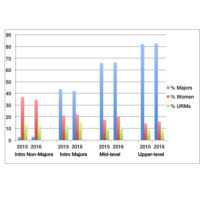
The 2016 Taulbee Survey report, published in the May 2017 issue of CRN, did not include the results of a component that was introduced in the most recent survey–namely, bachelor’s enrollment data from specific courses in the curriculum. This component was introduced as a result of what was learned in the CRA Enrollment Report (see https://cra.org/cra/data/generation-cs). Unfortunately, we were unable to compile the data in time to feature the results in the May issue.
Non-tenure-track teaching faculty are becoming more important to doctoral departments to help them meet their educational goals and responsibilities, particularly in response to the current enrollments surge. In the Generation CS report (available at https://cra.org/cra/data/Generation-CS/), 65% of doctoral departments reported in fall 2015 that they had increased the number of teaching faculty on continuing appointments in response to increased enrollments, and an additional 16% were considering it. Similarly, between fall 2006 and fall 2016, the proportion of Taulbee Survey respondents reporting at least one full-time non-tenure-track teaching faculty member increased from 81% to 87% and, more notably, the median number of such teaching faculty at the departments reporting nonzero counts rose from 3 to 6.
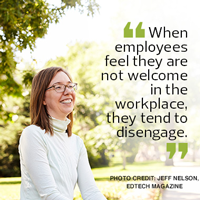
CRA’s own Jane Stout, director of the CRA Center for Evaluating the Research Pipeline (CERP), was recently featured in the article “Q&A: Researcher Shares Strategies to Increase Diversity in Tech,” in EdTech Magazine: Focus on Higher Education. Amy Burroughs, managing editor of EdTech spoke to Jane about why the lack of diversity in tech persists, how institutions benefit from diverse groups and how IT leaders can build more diverse teams. Drawing from her social science background and her current research on factors that influence women and minorities pursuing computing careers, Jane emphasized building a sense of belonging and community and encouraged IT managers to actively recruit women who can serve as role models and mentors. She also encourages IT managers to recognize that there are different types of effective leadership styles.
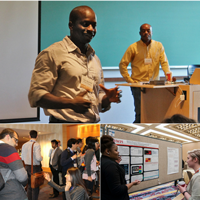
The Computing Research Association is pleased to announce a new iteration of the Graduate Cohort Workshop designed specifically for underrepresented minorities in computing and persons with disabilities. Applications are now open for the inaugural CRA URM Graduate Cohort Workshop, which will be held March 16-17, 2018 in San Diego, CA.
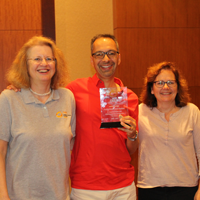
At the CRA Education Committee (CRA-E) meeting in June, Lori Pollock (University of Delaware) stepped up to replace Ran Libeskind-Hadas (Harvey Mudd College) as CRA-E co-chair. She will join current co-chair Susanne Hambrusch (Purdue University), and Ran will remain a member of the CRA-E committee.
July 1 marks a new fiscal year for CRA. We welcome four new members to our board of directors: Carla Brodley, Kim Hazelwood, Brian Noble, and Jaime Teevan. Retiring from the board as of June 30, 2017 are David Culler, Mary Czerwinksi, Margaret Martonosi, and Margo Seltzer. CRA would like to thank each of them for contributions during their service on the board.

At the CRA URMD Grad Cohort Workshop, participants will spend two days interacting with senior computing researchers and professionals, who will share pertinent information on graduate school survival skills, as well as more personal information and insights about their experiences. The workshop will include a mix of formal presentations and informal discussions and social events. By attending URMD Grad Cohort participants will be able to build mentoring relationships and develop peer networks that will form the basis for ongoing activities during their graduate career and beyond.
